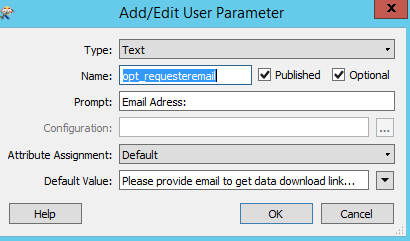
Dear everyone, In my fme workflow I have some published parameters and one of them is email (
opt_requesteremail) . For data download option I used this email parameter to get the data download link in email address. Till yet I am putting email address by my own. But I want to get email address automatically from user login. We are using LDAP.
Thanks
Regards
Muqit Zoarder




